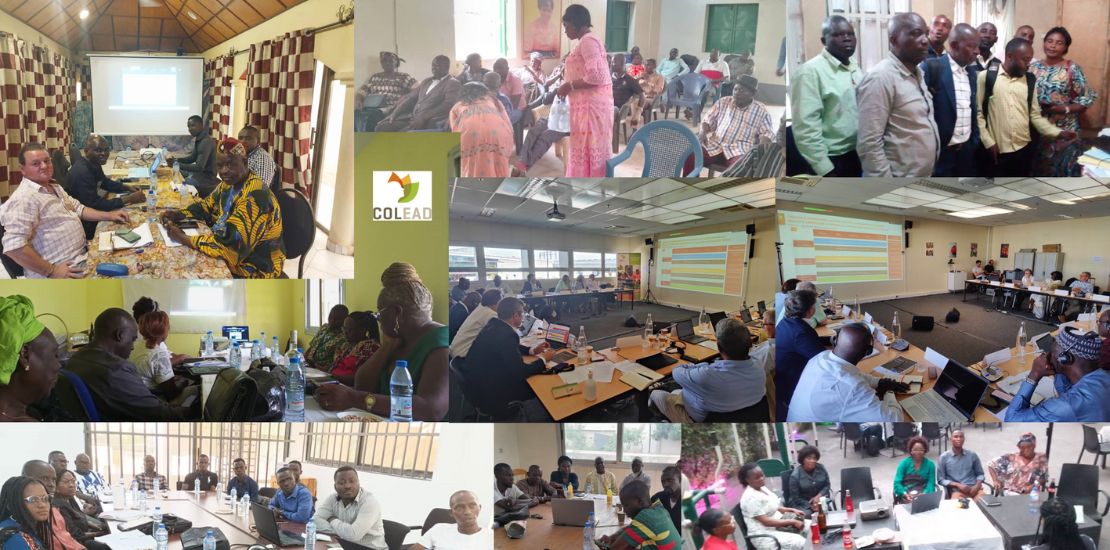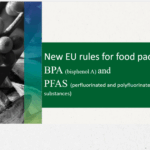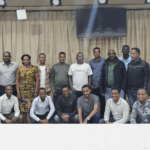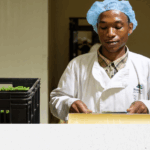- 22/07/2024
- Posted by: Sandra Borma
- Category: News

COLEAD 2024 General Meeting
COLEAD’s Annual Ordinary General Meeting (OGM) was held on 27 June 2024 in Rungis, with both face-to-face and distance participation, bringing together members from around twenty countries, including Belgium, Benin, Burkina Faso, Burundi, Chad, Cameroon, Ghana, Ethiopia, France, Haiti, Kenya, Madagascar, Mali, Nigeria, the Democratic Republic of Congo, the UK, Rwanda, Senegal, Togo and Zimbabwe. The event was an opportunity to share the latest news from the association over the past year and the strategic directions approved by the Board of Directors.
Adaptation and development in the face of global challenges
In a global context characterised by continuing climatic and economic disruption, increasing polarisation of political forces and changing and volatile patterns of behaviour, it was emphasised that COLEAD continues to adapt and evolve. Emphasis was placed on strategic objectives, strengthening the team and membership, expanding partnerships, financial security and effective implementation of programmes in support of sustainable agri-food systems, thereby contributing fully to the achievement of the Sustainable Development Goals (SDGs). COLEAD’s projects and programmes now cover more than 180 countries. Africa remains the main geographical focus.
Strengthening human resources and technical partnerships
One of COLEAD’s current key strengths is its human resources: a team of 70 staff, 20 in-country relays, an association of 500 members, a board of 14 directors and a network of 1,000 experts. The team continues to be mobilised in COLEAD’s three main operational centres in Europe (Brussels-Rungis), East Africa (Kenya) and West Africa (Togo). The ongoing consolidation of technical partnerships, particularly at global level, means that more resources can be mobilised to achieve COLEAD’s holistic objectives.
Strategic directions for 2024 and beyond
Members were reminded that the December 2023 Consultative Committee had highlighted the specific priorities and urgencies that COLEAD needs to respond to. Feedback from members and partners had confirmed COLEAD’s mission, while highlighting the need for targeted impact actions. In the future, COLEAD will therefore continue to act as a real-time information tool, a means of dialogue in regulatory decision-making processes, a resource for developing local expertise and large-scale vocational training, and a facilitator of access to funding and partnerships.
Working committees and life of the association
Since 2023, four working committees have involved members in the areas of marketing, advocacy, networks and governance. Several committee meetings took place between 2023 and the first half of 2024, with follow-up actions identified and first results achieved. The management of these committees and the country WhatsApp groups, the feedback from the 2024 Members’ Round Table, the increasing number of face-to-face national meetings and the accession of 14 new members are all signs that COLEAD is a living association, even if much remains to be done to ensure that its potential is realised, particularly at local level. Time and social networks should be our allies in this.
New projects and good news
New projects and programmes have been confirmed for the first half of 2024, including the Shared Interest Foundation project in Côte d’Ivoire, Rwanda and Uganda, the STDF project in Senegal and the project financed by the Inter-American Development Bank in the Dominican Republic on behalf of the Ministry of Agriculture. A very positive final evaluation of the FFM and FFM SPS programmes was also reported, underlining the quality of COLEAD’s skills and services, which remain our best calling card both locally and internationally.
In conclusion, COLEAD’s OGM was an opportunity to reaffirm the association’s commitment to sustainability, innovation and continued support for its members and partners in achieving the SDGs. The next five years look promising, with the confidence of our historic partners, new partners and others in the pipeline, continuity in actions taken and renewed ambition for sustainable and resilient agri-food systems, especially in countries most vulnerable to climate and economic disruption.





